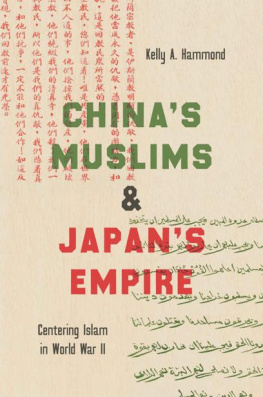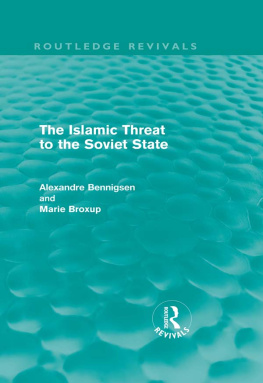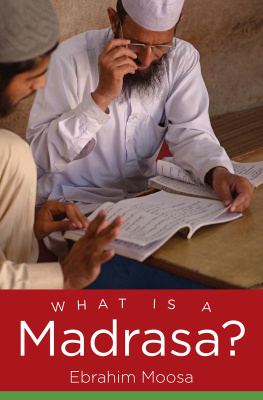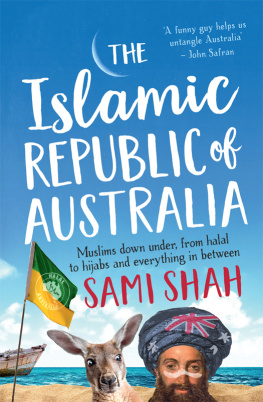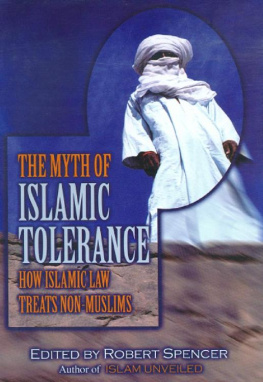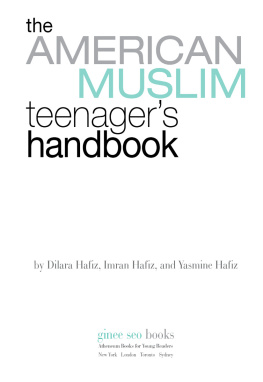Kelly A. Hammond - Chinas Muslims and Japans Empire (Islamic Civilization and Muslim Networks)
Here you can read online Kelly A. Hammond - Chinas Muslims and Japans Empire (Islamic Civilization and Muslim Networks) full text of the book (entire story) in english for free. Download pdf and epub, get meaning, cover and reviews about this ebook. year: 2020, publisher: The University of North Carolina Press, genre: Politics. Description of the work, (preface) as well as reviews are available. Best literature library LitArk.com created for fans of good reading and offers a wide selection of genres:
Romance novel
Science fiction
Adventure
Detective
Science
History
Home and family
Prose
Art
Politics
Computer
Non-fiction
Religion
Business
Children
Humor
Choose a favorite category and find really read worthwhile books. Enjoy immersion in the world of imagination, feel the emotions of the characters or learn something new for yourself, make an fascinating discovery.
- Book:Chinas Muslims and Japans Empire (Islamic Civilization and Muslim Networks)
- Author:
- Publisher:The University of North Carolina Press
- Genre:
- Year:2020
- Rating:3 / 5
- Favourites:Add to favourites
- Your mark:
- 60
- 1
- 2
- 3
- 4
- 5
Chinas Muslims and Japans Empire (Islamic Civilization and Muslim Networks): summary, description and annotation
We offer to read an annotation, description, summary or preface (depends on what the author of the book "Chinas Muslims and Japans Empire (Islamic Civilization and Muslim Networks)" wrote himself). If you haven't found the necessary information about the book — write in the comments, we will try to find it.
Kelly A. Hammond: author's other books
Who wrote Chinas Muslims and Japans Empire (Islamic Civilization and Muslim Networks)? Find out the surname, the name of the author of the book and a list of all author's works by series.
Chinas Muslims and Japans Empire (Islamic Civilization and Muslim Networks) — read online for free the complete book (whole text) full work
Below is the text of the book, divided by pages. System saving the place of the last page read, allows you to conveniently read the book "Chinas Muslims and Japans Empire (Islamic Civilization and Muslim Networks)" online for free, without having to search again every time where you left off. Put a bookmark, and you can go to the page where you finished reading at any time.
Font size:
Interval:
Bookmark:
CHINAS MUSLIMS & JAPANS EMPIRE
ISLAMIC CIVILIZATION AND MUSLIM NETWORKS
Carl W. Ernst and Bruce B. Lawrence, editors
Highlighting themes with historical as well as contemporary significance, Islamic Civilization and Muslim Networks features works that explore Islamic societies and Muslim peoples from a fresh perspective, drawing on new interpretive frameworks or theoretical strategies in a variety of disciplines. Special emphasis is given to systems of exchange that have promoted the creation and development of Islamic identitiescultural, religious, or geopolitical. The series spans all periods and regions of Islamic civilization.
A complete list of titles published in this series appears at the end of the book.
Centering Islam in World War II
Kelly A. Hammond
THE UNIVERSITY OF NORTH CAROLINA PRESS
Chapel Hill
Publication of this book was aided by the generous support of the Chiang Ching-kuo Foundation for International Scholarly Exchange.
2020 The University of North Carolina Press
All rights reserved
Designed by Jamison Cockerham
Set in Arno, Scala Sans, Telmoss, and Graveney
by Tseng Information Systems, Inc.
Manufactured in the United States of America
The University of North Carolina Press has been a member of the Green Press Initiative since 2003.
Front cover background: anticommunist propaganda in Arabic and Chinese produced by the Hebei Muslim Association, 1939. Courtesy Greater Japan Muslim League database, Waseda University Library Special Collections.
LIBRARY OF CONGRESS CATALOGING-IN-PUBLICATION DATA
Names: Hammond, Kelly A., author.
Title: Chinas Muslims and Japans empire : centering Islam in World War II / Kelly A. Hammond.
Other titles: Islamic civilization & Muslim networks.
Description: Chapel Hill : University of North Carolina Press, 2020. | Series: Islamic civilization and Muslim networks | Includes bibliographical references and index.
Identifiers: LCCN 2020010714 | ISBN 9781469659640 (cloth) | ISBN 9781469659657 (paperback : alk. paper) | ISBN 9781469659664 (ebook)
Subjects: LCSH: World War, 19391945Social aspectsJapan. | World War, 19391945JapanInfluence. | MuslimsChinaForeign influences. | MuslimsChinaHistory20th century. | JapanForeign relationsChina.
Classification: LCC D744.7.J3 H36 2020 | DDC 940.53088/2970951dc23
LC record available at https://lccn.loc.gov/2020010714
For my parents
This book has been a long time in the making. Along the way, I have accumulated debts to many people who have offered me their kindness, time, and support. I am also grateful to a number of institutions and agencies for their financial backing over the years. Georgetown University was a fabulous place to pursue my graduate studies in history. The department was encouraging, and my classmates (who have become my colleagues) made the journey less arduous. I was very fortunate to receive funding from the Canadian Social Science and Humanities Research Council, which ensured that I could spend summers in Asia and make ends meet in Washington, D.C. At Georgetown, I was lucky to have James Millward, Carol Benedict, and Jordan Sand as advisors. Beyond the unwavering support from these three individuals, Micah Muscolino, Judith Tucker, and Aviel Roshwald were also thoughtful and generous mentors.
Since I arrived at the University of Arkansas in the fall of 2015, the history department and the Fulbright College of Arts and Sciences have had my back. First and foremost, I need to thank my colleagues in the history department for fostering an atmosphere of collegiality that I never dreamed possible. I reserve a special thank-you for Lynda Coon. She not only watches my dog when I go out of town but has also been an incredibly helpful and encouraging faculty mentor and friend. Beyond my colleagues, the J. William Fulbright College of Arts and Sciences, Ted Swedenburg and the King Fadh Center for Middle East Studies, Ka Zeng and the Asian Studies program, and the Honors College continue to support my research and teaching, both financially and intellectually. I received SEED funding from the vice-provost for research and development, which helped fund a three-month trip to Japan to collect extra sources for this book. The fabulous people who work in the Interlibrary Loan office at the University of Arkansas are also well deserving of a mention: they manage to track down my wackiest requests.
A number of funding agencies have supported the timely completion of this project. Backing from the Henry Luce Foundation/ACLS Program in China Studies in the form of its Early Career Fellowship allowed me to take a year off from teaching and service to complete a draft of the manuscript. A fellowship at the Kluge Center in the Library of Congress provided another extended period where I was able to get the book sent out for review while starting research on my second project. Along the way, I received the Franklin Research Grant from the American Philosophical Society, the Association for Asian Studies Northeast Asia Council Research Grant, and a three-month residency fellowship from the Center for Chinese Studies in the National Library in Taipei. I was also awarded a publication subsidy grant from the Chiang Ching-kuo Foundation. These grants were instrumental for completing the book.

I have made a number of incredible friendships along this journey, and some of them have now become my colleagues. A few deserve special recognition for their support and intellectual curiosity. Micki McCoy and I met teaching English in China in the early 2000s. Kate Merkel-Hess and Denise Ho invited me to join their reading group while I was studying Chinese in Shanghai. Josh Freeman, Eric Schluessel, David Tobin, and I spent way too much time in a yurt bar owned by a corrupt Mongolian cop across the street from Xinjiang Normal University in 20078. Around that time, Micki McCoy came out to visit me in Xinjiang and we inspected all the Buddhist grottoes we could access in the region before taking a three-day train ride from Urumqi to Shanghai. The five of us seem to have emerged from this period in our lives relatively unscathed, and I value their friendship and support over the years.

Along the way, I have also met a number of people who deserve much more than a shout-out in these acknowledgments. Noriko Yamazaki is a dear friend who read and commented on the entire manuscript. Toni Jensen and Ram Natarajan have become my Fayetteville family. Jeff Wasserstrom has been supportive of my work and career since I wrote a piece for the China Beat back in 2008. Abhishek Kaicker is an old friend, going back to our days as masters students in Vancouver. Elise Anderson, David Atwill, Jacob Eyferth, Michael Gibbs Hill, Christine Kim, Jonas Lamn, Fabio Lanza, Diana Lary, Tom Mullaney, Kristian Petersen, Javier Puente, Rian Thum, Aparna Vaidik, Ben Van Overmeire, Stacey Van Vleet, and Elizabeth Williams have all played a role in my journey. Thanks also to Benno Weiner for the encouragement, for the helpful and thoughtful editorial comments, and for always being up to trying new breweries. They are all impressive scholars and great people to be around. I also want to thank the Asian studies twittersphere for its collective support and daily laughs throughout this project. There are incredible people working in this field, and I am humbled to call so many of them my friends and colleagues.
Font size:
Interval:
Bookmark:
Similar books «Chinas Muslims and Japans Empire (Islamic Civilization and Muslim Networks)»
Look at similar books to Chinas Muslims and Japans Empire (Islamic Civilization and Muslim Networks). We have selected literature similar in name and meaning in the hope of providing readers with more options to find new, interesting, not yet read works.
Discussion, reviews of the book Chinas Muslims and Japans Empire (Islamic Civilization and Muslim Networks) and just readers' own opinions. Leave your comments, write what you think about the work, its meaning or the main characters. Specify what exactly you liked and what you didn't like, and why you think so.

